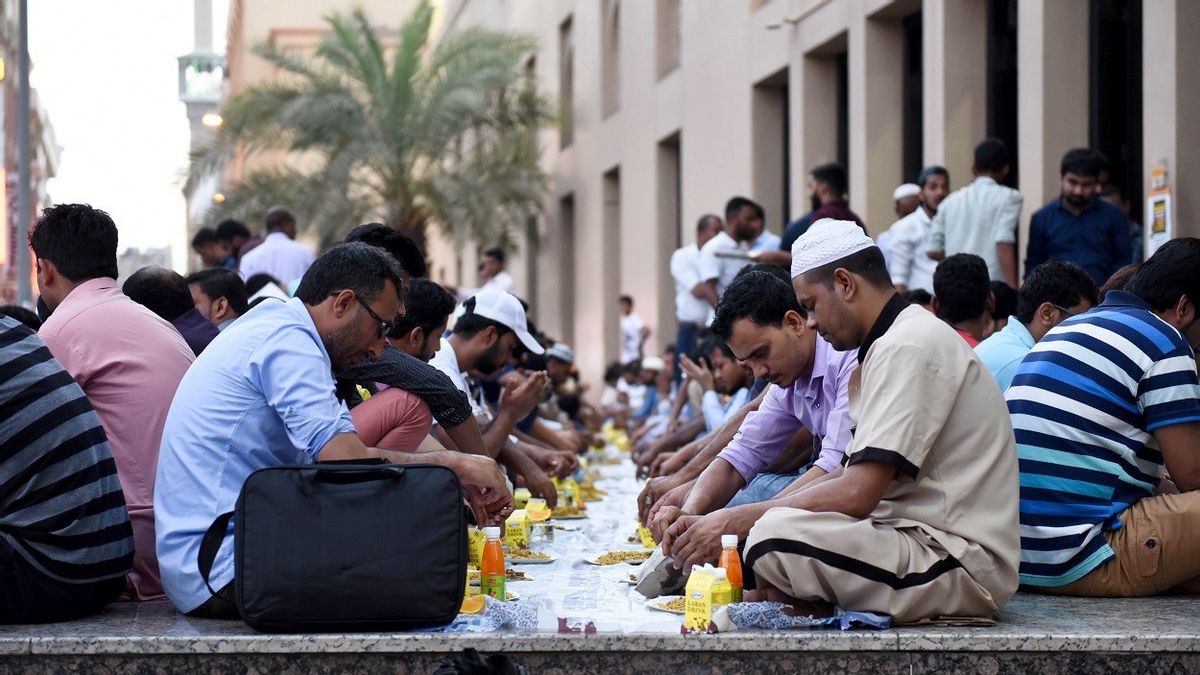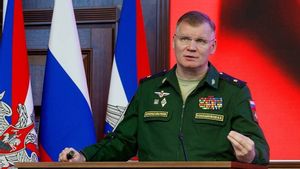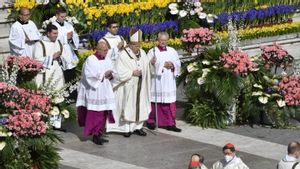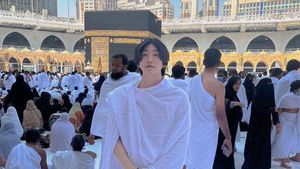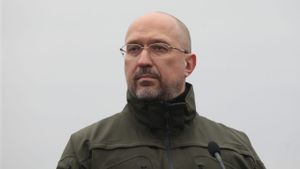JAKARTA - Hundreds of people gather in two Ramadan tents in Sharjah, United Arab Emirates (UAE) every day, to enjoy a free iftar meal, where more than 1.000 portions of free food are served.
As community life begins to 'return', people have been patiently waiting in line for a kilometer outside the twin tents in Al Ghuwair, even as early as 4:30 p.m. local time.
Mohammad Ihsan, a student, was one of the first to arrive to get a place inside an air-conditioned tent set up by the Kerala Muslim Cultural Center (KMCC), where 1.500 free meals were served.
"I am happy that we can eat together again with people of different nationalities," Ihsan said as quoted by The National News April 18.
He said he had been eating Ramadan food prepared by KMCC for four years. For the past two years when tents were not allowed, food was delivered to his home by group volunteers.
Meanwhile, Mujeeb Rahman, secretary-general of the group's Sharjah branch, said the volunteers did an 'amazing job' during the pandemic years.
"When most people stay at home, our volunteers provide iftar food as well as medicine to COVID-19 patients," he said.
KMCC received permission to set up tents in Sharjah this year, as coronavirus restrictions have been relaxed, but continues to deliver around 3.000 meals in Dubai and Abu Dhabi.
Distribution was handled by a group of 100 volunteers in Sharjah, 150 in Dubai, and 120 people in Abu Dhabi.
"We thank the government for reopening the iftar tents," said Anwar Naha, secretary-general of the UAE branch of KMCC.
"You can see so many people queuing and our volunteers are so enthusiastic to serve them. It shows that we all have missed the tent."
It is known, each serving of the lunch box consists of chicken biryani, dates, fruit, juice, and drinking water. The menu is prepared by a team of four chefs who start cooking at 10 a.m., finishing just after 3 p.m.
Every day they cook almost 250 kg of rice, 250 kg of chicken and vegetables. The cooked food was brought to the tent at around 3.30 p.m. and packed by a team of volunteers.
SEE ALSO:
To comply with the implementation of health protocols that are still in effect, all visitors go through a thermal check, said Zakeer Kumbala, the volunteer manager. The public is also required to wear masks as part of the COVID-19 protocol.
"We have a dedicated cleaning team and we make sure the tent is cleaned as soon as we finish eating," said Kumbala.
Towards the time of breaking the fast, after the Maghrib call to prayer was heard, the volunteers joined the visitors and ended their fast. While the majority of people went to the nearby mosque to pray, some remained behind and prayed inside the tent.
The English, Chinese, Japanese, Arabic, and French versions are automatically generated by the AI. So there may still be inaccuracies in translating, please always see Indonesian as our main language. (system supported by DigitalSiber.id)
